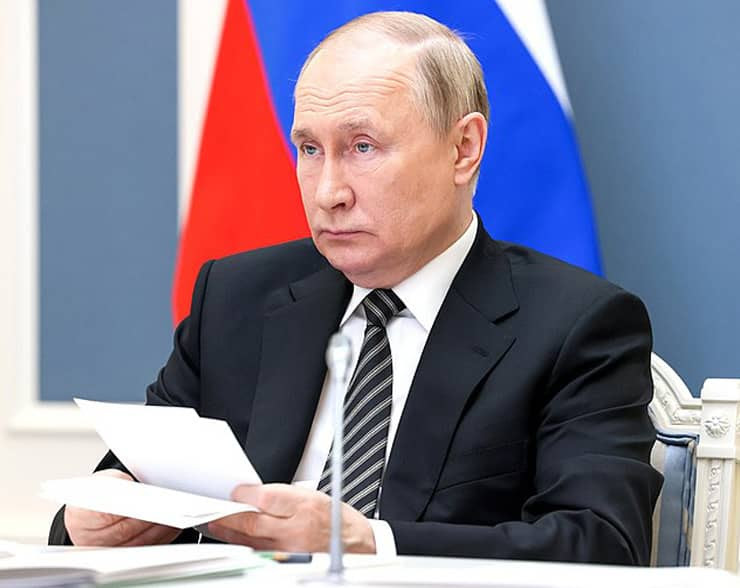Rattling With Nuclear Weapons. September 25, 2022Rene WadlowAssociation of World Citizens, Day of Peace, Donetsk, Kherson, Lugan
Featured Image: During the meeting of the Supreme Eurasian Economic Council (via videoconference). By Kremlin.ru, CC BY 4.0 <https://creativecommons.org/
On 21 September, the United Nations designated Day of Peace, Vladimir Putin, President of the Russian Federation in an address to the nations said:
” I am addressing you – all citizens of our country, people of different generations, ages and ethnicities, the people of our great Motherland, all who are united by the great historical Russia, soldiers, officers and volunteers who are fighting on the frontline and doing their combat duty, our brothers and sisters in the Donetsk and Lugansk People’s Republics, Kherson and Zaporazhye regions and other areas that have been liberated from the neo-Nazi regime.”
He set out the dangers facing the Federation.
“The goal of that part of the West is to weaken, divide and ultimately destroy our country. They are saying openly now that in 1991 they managed to split up the Soviet Union and now is the time to do the same to Russia, which must be divided into numerous regions that would be at deadly feud with each other… Washington, London and Brussels are openly encouraging Kiev to move hostilities to our territory. They openly say that Russia must be defeated on the battlefield by any means, and subsequently deprived of political, economic, cultural and any other sovereignty and ransacked.”
To meet these challenges he ordered a:
” partial mobilisation in the Russian Federation to defend our Motherland and its sovereignty and territorial integrity, and to ensure the safety of our people and people in the liberated territories.”
Sergei Shoigu, the Russian Defense Minister, set out the details in a public statement just after Putin’s address. The mobilization will call up men below the age of 65 who have had military service. There are some 300,000 people in this category.
The nuclear saber rattling followed. Putin went on:
” I am referring to the statements made by some high-ranking representatives of the leading NATO countries on the possibility and admissibility of using weapons of mass destruction – nuclear weapons against Russia… In the event of a threat to the territorial integrity of our country and to defend Russia and our peole, we will certinaly use all weapon systems available to us. This is not a bluff.”
He ended by saying:
“The citizens of Russia can rest assured that the territorial integrity of our Motherland, our independence and freedom will be defended – I repeat – by all the systems available to us.”
What makes the current situation more ambiguous and dangerous is that Vladimir Putin announced and confirmed by Sergei Shoigu that from 23 to 27 September 2022, there would be referendums in the Donetsk and Lugansk People’s Republics and in the areas under Russian control in the Kherson and Zaporazhye regions on joining the Russian Federation.
People who are refugees in Russia from these areas will also be able to vote. A vote favorable to joining Russia is not in doubt. Thus any future military operations by Ukraine forces in these areas could be considered by Russia as an attack on Russian territory.
It is impossible to know to what extent the nuclear weapon saber rattling is serious, if it goes beyond a justification for the mobilization of former military – not a popular policy. The situation calls for active efforts to decrease tensions on the part of the U.N. of national governments and of NGOs. The next weeks may be crucial.
René Wadlow, President, Association of World Citizens.





